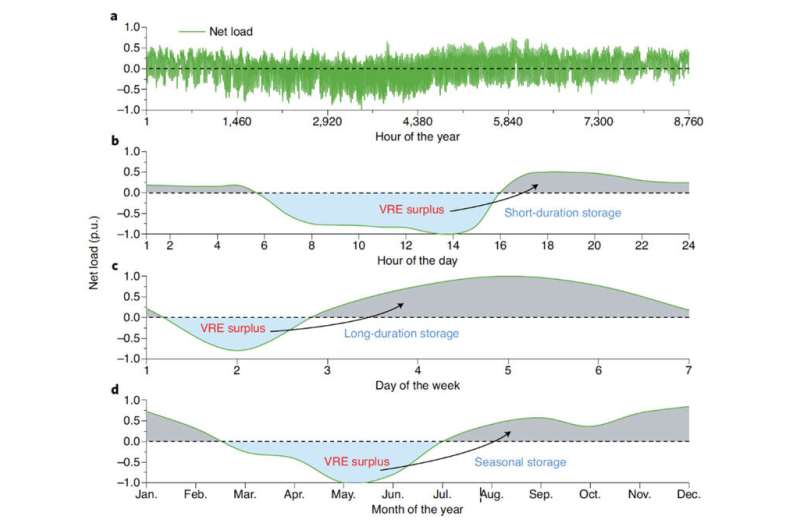Researchers take a practical look beyond short-term energy storage

With variable renewable energy (VRE) expected to become a much larger share of the global energy mix, storage solutions are needed beyond short-duration timescales, such as standard commercial batteries, which are suitable for covering hourly differences in net load.
A Nature Energy “News & Views” article by National Renewable Energy Laboratory (NREL) research engineer Omar J. Guerra describes research needs for longer-duration and seasonal energy storage solutions. The article, titled “Beyond short-duration energy storage,” reviews important practical implications of a research article contributed by Nestor A. Sepulveda and colleagues, as well as research opportunities to develop a stronger understanding of how long-term and seasonal storage technologies can become cost-effective and grid-supportive energy solutions.
Guerra’s article draws attention to the need for new system-level models that resolve the integrated aspects of longer-duration storage options, including seasonal timescales.
Longer-duration energy storage technologies could include mechanical, such as pumped hydro; electrochemical, such as novel battery technologies; chemical, such as hydrogen; or thermal, such as molten salts. Guerra’s article describes recent studies showing how these technologies can provide grid-scale storage in the long term; however, more detailed analysis is needed to motivate industry investment and determine the complete value of upcoming technologies to the grid.
This review summarizes the research needs to arrive at more comprehensive results: better temporal representation for production cost models and capacity planning models; more integrated models showing how storage technologies behave with varying loads and levels of renewables; and better-informed experimental validation of storage technologies.
Overall, this article suggests that with higher detail and more representative modeling, the energy industry will have a more complete understanding of how long-duration storage technologies could displace carbon-intensive energy sources, provide resilience and transmission deferral benefits, and become economically viable investments.
Answer to energy storage problem could be hydrogen
Omar J. Guerra, Beyond short-duration energy storage, Nature Energy (2021). DOI: 10.1038/s41560-021-00837-2
Citation:
Researchers take a practical look beyond short-term energy storage (2021, May 27)
retrieved 8 June 2021
from https://techxplore.com/news/2021-05-short-term-energy-storage.html
This document is subject to copyright. Apart from any fair dealing for the purpose of private study or research, no
part may be reproduced without the written permission. The content is provided for information purposes only.
For all the latest Technology News Click Here
For the latest news and updates, follow us on Google News.
